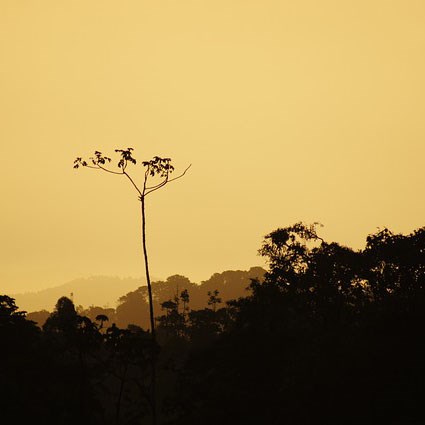Contact
Department of Crop Production Ecology, Agricultural cropping systems

For more than five decades, the civil war in Colombia caused major suffering for the people forcing the migration of millions from the countryside to urban and peri-urban areas. When people left the countryside, the recovery of forest and biodiversity was exuberant, being accounted as the only positive aspect of this event. Now, since the peace agreement, people can return to farm their land. Marcos Lana at SLU will, together with research colleagues and farmers, find and test methods to combine agriculture and cattle farming with coexistence and preservation of the forest.
Juan Manuel Santos, president of Colombia, received the Nobel Peace Prize 2016 for negotiating a peace treaty with the FARC guerilla. This marked the end of a bloody civil war between governmental troops and the FARC guerilla, where the guerilla and drug dealers for a long time had controlled the countryside. People fled (creating the world's second largest population of internally displaced persons). Often because of the battles, but sometimes the reason was that they didn´t want to grow illegal drugs. An important part of the peace treaty was that the farmers who moved to the cities and their surroundings should be able to return home.
The landscape has changed a lot during the 50 years of war. The forest has reclaimed the fields. The area has served as a carbon sink and it has also provided more living space for Colombia's rich biodiversity.

Marcos Lana.
"The only positive thing about the war was that the forest recovered," says Marcos Lana.
But now the forest is threatened. The deforestation rate has skyrocketed and the area is being transformed into a carbon source.
The project coordinated by Marcos Lana will try to find and test agricultural methods that can be combined with forest. The project is a collaboration between the Leibniz Center for Agricultural Landscape Research-ZALF (Germany), the International Center for Tropical Agriculture (CIAT) and the Colombian Center for sustainable systems of agricultural production (CIPAV) , and has been approved at ministerial level in Germany and Colombia. Now, SLU is involved because Marcos Lana is employed as a post doctor at the Department of Crop Production Ecology.
The farmers play an important role in the project.
"It's absolutely not a matter of bringing a new technology and teach them how to use it. We want to create new things together. The researchers can contribute with ideas on what could be tested, while farmers know what could work. We are aiming for methods that secure a good income, produce low carbon dioxide emissions and are positive for biodiversity by allowing a co-existence with the local biodiversity," said Marcos Lana.
The general idea is to integrate livestock farming (pastures) with trees and crops. Especially in tropical regions, some crops are adapted to grow under half-shaded conditions. The trees are also a great advantage for grazing animals because they protect both the animals and the grass from high sun incidence, commonly in tropical regions. Either some of the trees on a field can be integrated in production systems (agroforestry), new fast-growing legume trees can be planted that can also be used as animal feed or even as wood, and borders or marginal land can be kept intact as biodiversity areas.
This is not the first time that Marcos Lana works in close collaboration with farmers. In a project in Tanzania, the goal was to find cultivation methods that reduced the risk of crop failure and starvation.
"The question was different from Colombia. In Tanzania, it was really about food security, to stop the crops from drying out.
The project will last for four years and Marcos Lana will go to Colombia still in 2019 for the kick off meeting. One thing he is worried about is that the government has recently expanded the area that is open for agricultural interventions. This resolution also opens the doors to more competitive and intense farming. Marcos Lana, along with two colleagues, recently wrote about it in Nature Communications.
- Farmers returning to their country rarely have papers to state that they own it. It's usually enough that they can show that the family has cultivated the land for generations. But if large companies with financial resources are interested there is a risk that traditional small-scale farmers loses their ground, " says Marcos Lana.
That would reduce the possibilities for sustainable agriculture and opportunities for many people to earn their income in the Colombian countryside